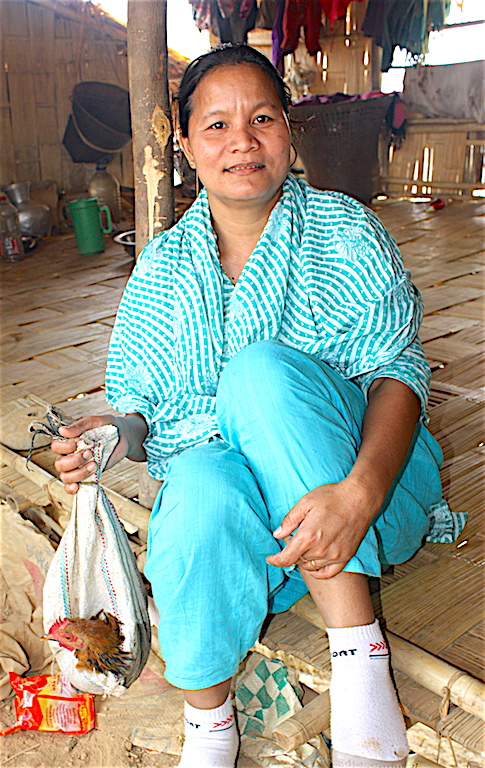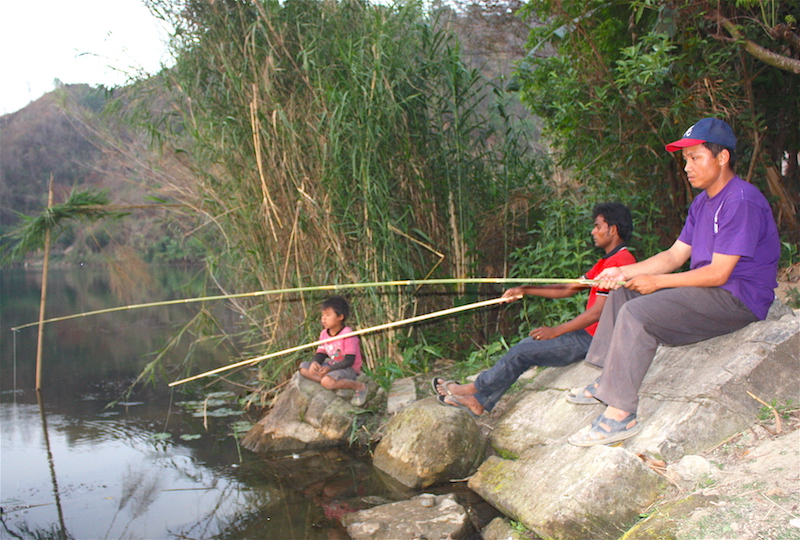Categories
What would you pay for a safe birth?

I took this photo a couple of years ago at a little café near an intersection in the Chittagong Hill Tracts of Bangladesh. When I say “café”, I mean a bamboo shelter where you could get a cup of tea, some bananas and rice before heading on the next section of the journey. And when I say “intersection”, I mean the place where the track meets the walking trail that is the main route to Boga Lake, Mount Keokradong, Sunsawng Para and numerous other villages.
Boga Lake is set into a crater. There is no river flowing in or out, but it holds a consistent water level throughout the year. We fished from the bank using the most simple of equipment - a hook on about two metres of line attached to a reed. The fish we caught were small, but the size of the fish scales on the grass indicated there were some monsters out deeper. It didn’t matter. The natural beauty and peaceful sounds of birds and frogs were reward enough.
The small town on the edge of the lake was similar to other villages in the hill districts in the south east of Bangladesh. Buildings made of wood and bamboo, some with iron roofs, informally scattered around a network of dirt paths. A collection of chooks and dogs, a few pigs. The sounds of children laughing. At the end of town was a corrugated iron building – they were fortunate to have a primary school. A row of guest houses facing the lake catered for tourists coming from Dhaka. Some of them had generators, and a few of the houses had solar panels attached to the grass roofs, but mostly the community managed without electricity as they had done for generations.
The nearest medical centre was a day’s walk, and a medical evacuation involved being carried on a blanket suspended between bamboo poles resting on the shoulders of men from the village.
Life in this tranquil village was simple. Most people survive on less than fifty cents a day and worked from dawn to dusk to grow rice and fruit. Any source of protein, such as chicken, is a luxury.
We started talking to the woman at the café near the intersection, but it took me a while to even notice the chicken she was carrying – its head poking through a hole in the top of the bag. She explained that she is a community midwife and had spent the night in Boga Lake to deliver a baby. The chicken was her payment.
What would you pay for a safe delivery?
Recently a group of women from the Bandarban Hills, which includes Boga Lake, asked if Fulcrum Aid would support the training of Village Health Workers for regions that have no access to maternal health services. Just $250 is enough to provide a Village Health Worker with basic training that can dramatically reduce the rate of maternal mortality. In time we hope to see clinics and ante-natal classes with fully qualified midwives, but for now we have agreed to sponsor the training of ten Village Health Workers.
It’s a small start. But for women facing child-birth without access to maternal health services they value this help more than words can express.

Photo: Fishing on Boga Lake
Would you like to help provide Village Health Workers in the Bandarban Hills of Bangladesh? Here are some possibilities...
- Make a donation (Click here to go to our donations page. Click here to pay by Credit Card)
- Arrange a group to sponsor training for one Village Health Worker
- Share this project with your friends
- Arrange a presentation by a Fulcrum Aid team member
Please This email address is being protected from spambots. You need JavaScript enabled to view it. for any further information.

